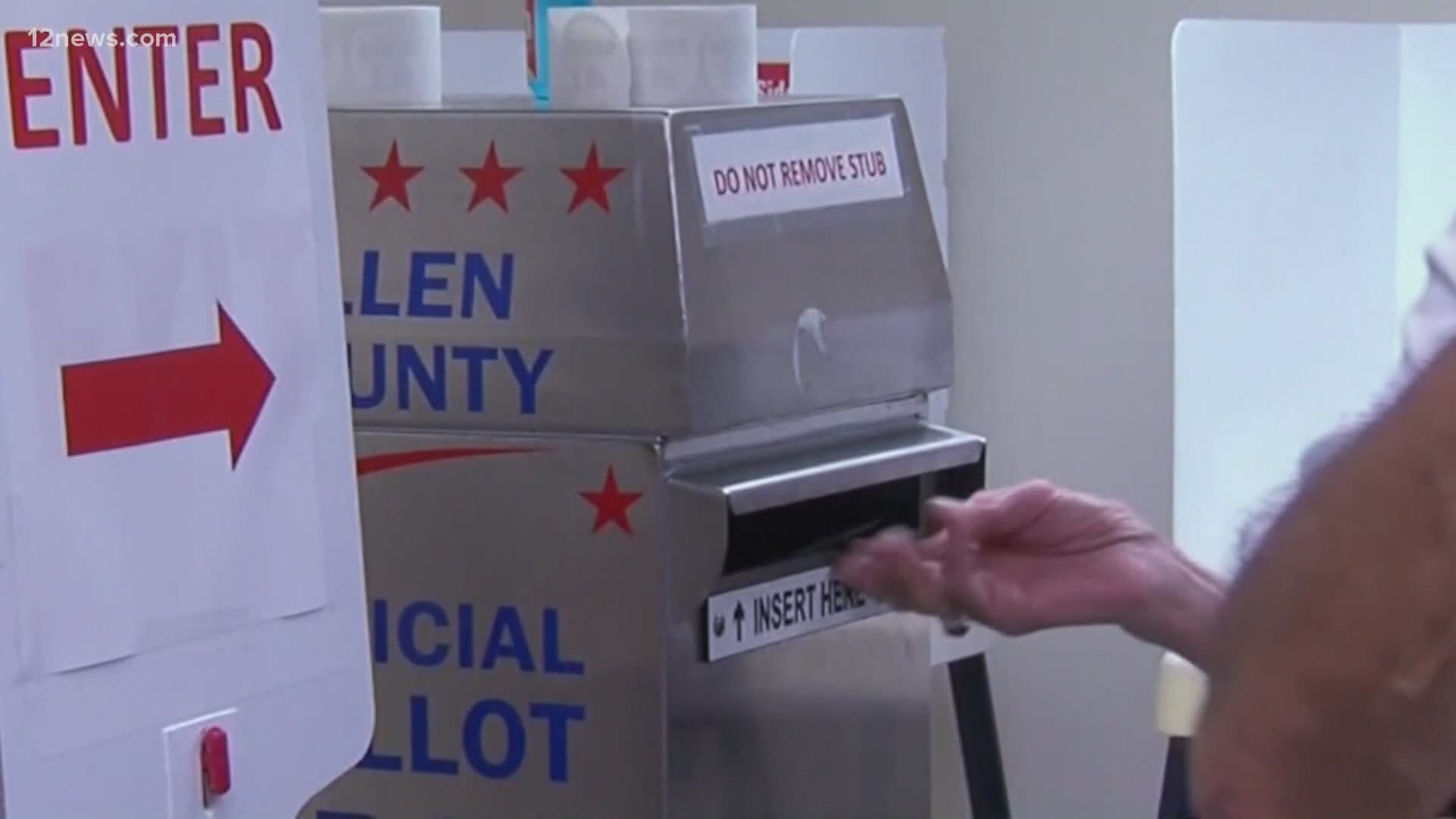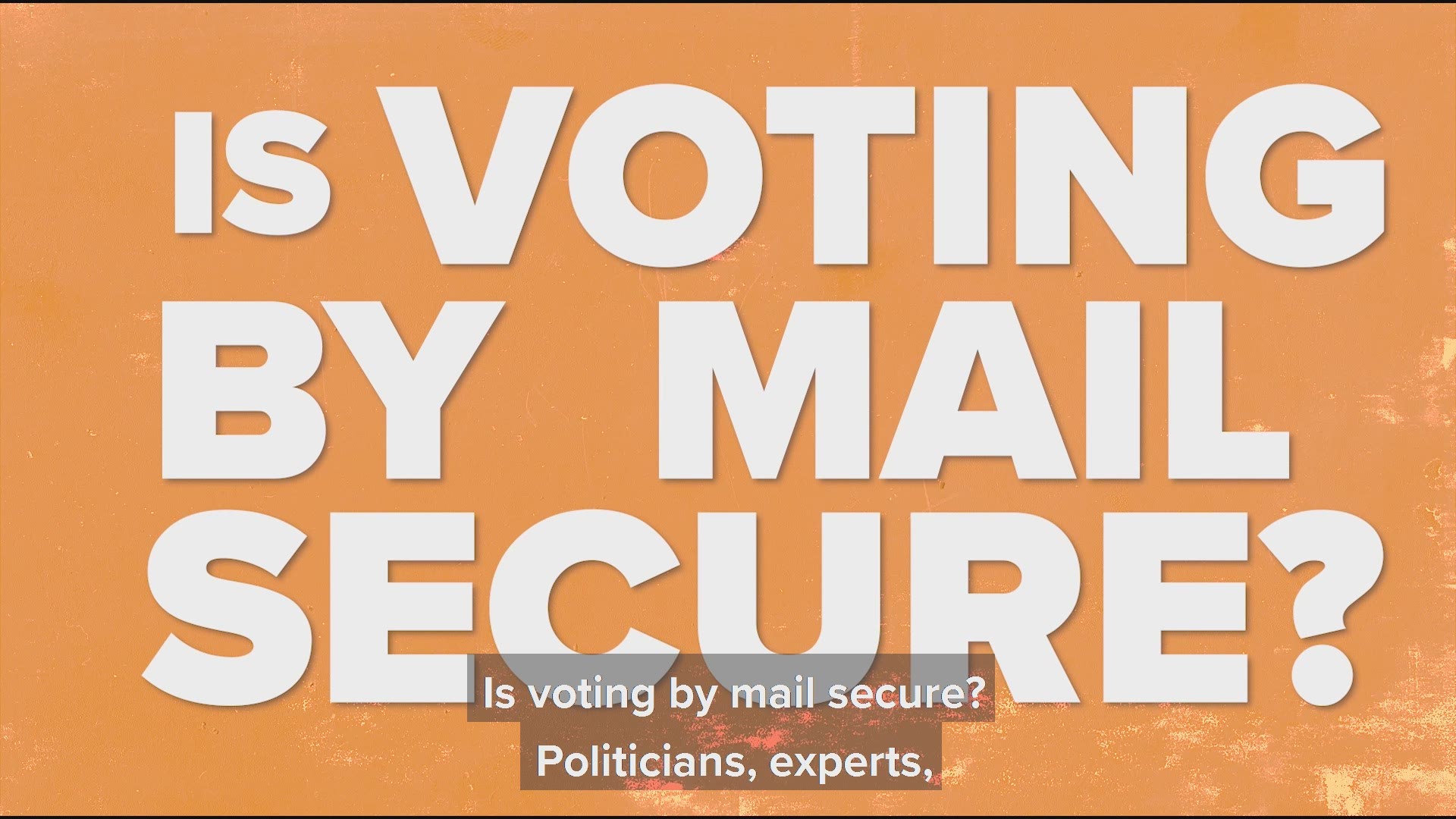PHOENIX — In a last-minute ruling, a federal judge late Monday extended Arizona’s voter registration deadline for the November election by almost three weeks.
The registration deadline had been midnight Monday. It’s now set for 5 p.m. Oct. 23, the same deadline for requesting an early ballot.
Judge Steven Logan ruled the coronavirus pandemic prevented voting rights organizations from signing up new voters, potentially depriving those voters of their right to representation.
“A core tenet of democracy is to be ruled by a government that represents the population,” said Logan, a President Barack Obama appointee in 2014 who worked as a federal prosecutor and immigration judge.
“Due to COVID-19, a portion of the population is prevented from registering to vote, and thus the integrity of the election is undermined in a different way; that portion is going unrepresented. Extending the deadline would give more time for those voters to register and let their voices be heard through the democratic process.”
RELATED: When will mail-in ballots be sent? How can I vote early? FAQs about the 2020 election in Arizona
The extension was opposed by Democratic Secretary of State Katie Hobbs, Republican Gov. Doug Ducey, and the Republican National Committee.
They argued, in part, that the lawsuit should have been filed earlier in the pandemic, rather than on the eve of the election.
Within hours of Logan’s ruling, attorneys for the RNC and the National Republican Senatorial Committee, a campaign arm of Senate Republicans, filed notice of an appeal with the Ninth Circuit Court in San Francisco.
Hobbs said in a tweet that she wouldn’t appeal, but she urged anyone who still needs to register to “do so as soon as possible. Do not wait.”
Left unsaid was the possibility that a higher court ruling tossing out Logan’s decision might invalidate Arizona voter registrations filed after the original Monday deadline.
A U.S. Supreme Court ruling Monday night in a South Carolina case suggests what the court could do.
The court invalidated South Carolina mail-in ballots that lacked a witness’ signature.
The high court did allow ballots already returned without a signature to be counted, but three justices said they would have tossed out all the ballots.
The Arizona lawsuit was filed against Hobbs just five days ago, on Sept. 30, by Mi Familia Vota and the Arizona Coalition for Change. Both non-profits have been working to register voters for the November election.
“From March 30, 2020, when Arizona imposed a stay-at-home order and other restrictions on day-to-day interactions in order to mitigate the effects of the pandemic, to the middle of August when those restrictions were lifted, Plaintiffs were effectively prevented from registering voters,” the lawsuit says.
“The act of registering people to vote through voter registration drives and get-out-the-vote campaigning implicates core political speech and associational rights protected by the First and Fourteenth Amendments.”
In a a statement after the ruling, Mi Familia Vota said new voter registration has been far lower than in previous years.
“This is a huge victory for democracy,” said Flavio Bravo of Mi Familia Vota, a Washington, D.C.-based group that's been active in Arizona for more than a decade.
“With this court-ordered relief, thousands of more voters will be able to register to vote in the midst of this pandemic and will be able to participate in the November 2020 election.”


